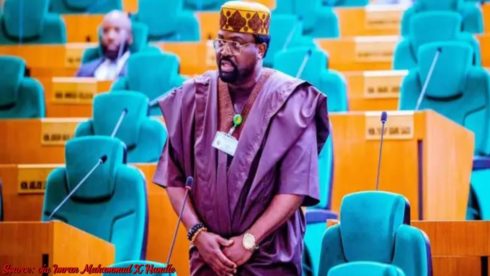The Nigerian House of Representatives, on Thursday, took a significant step toward reshaping the political landscape by passing a bill on its first reading. This legislation seeks to amend the 1999 Constitution, allowing independent candidates to contest elections across various levels of government. The bill aims to open the political arena to individuals who wish to run for office without party affiliation, which could alter the dynamics of future elections.
This proposed law, titled “A bill for an Act to alter the provisions of the Constitution of the Federal Republic of Nigeria, 1999 (As amended) to allow for the participation of candidates who are not sponsored by political parties in the presidential, governorship, National Assembly, State Houses of Assembly and local government council elections,” is a key development in Nigeria’s democratic evolution. By encouraging more diverse participation, the bill aims to foster a political system where individuals can run solely on their personal credentials, not on the backing of political parties.
House of Representatives Bill Seeks to Amend Key Sections of the 1999 Constitution
The bill, which has passed its first reading, seeks to alter several sections of the 1999 Constitution, namely Sections 7, 65, 106, 131, 177, and 221. These sections cover essential aspects of the electoral process and the requirements for candidates to contest various political offices. If passed, these amendments would provide a legal framework for independent candidacy, which is currently not recognized under the Nigerian constitution.
These constitutional changes are expected to redefine the political process by reducing the overwhelming dominance of political parties in Nigeria’s electoral system. Under the current arrangement, only candidates sponsored by registered political parties can contest elections. The proposed amendments would ensure that independent candidates meet specific criteria, which are yet to be detailed, to ensure their viability as contenders.
Akin Rotimi Champions the Bill for Independent Candidacy- House of Representatives
The bill is sponsored by Akin Rotimi, the spokesperson for the House of Representatives and representative of the Ikole/Oye Federal Constituency in Ekiti State. Rotimi has been an advocate for political reform, stressing the importance of opening up the political space to more diverse candidates. His sponsorship of this bill underscores his commitment to enhancing democratic principles by reducing the barriers to entry for public office.
Rotimi believes that the proposed law will enable more qualified Nigerians to participate in the political process, particularly those who may not align with any existing political party. This move is expected to promote meritocracy in Nigeria’s political system, encouraging voters to focus on the character and competency of individual candidates, rather than their party affiliations.
House of Representatives – Implications for Nigeria’s Political Landscape
If passed, this bill could have far-reaching implications for Nigeria’s political landscape. One of the most immediate effects would be the reduction of the monopoly that political parties currently hold over the electoral process. Independent candidates would have the opportunity to contest elections at all levels, from local government councils to the presidency. This could lead to more competitive elections and encourage greater accountability among elected officials.
The introduction of independent candidacy could also address the issue of voter apathy, as many Nigerians have expressed dissatisfaction with the existing political parties. By providing more options for voters, this bill could lead to increased voter participation, as citizens would have the chance to vote for candidates who truly represent their interests, rather than choosing from a limited pool of party-affiliated contenders.
House of Representatives: Challenges Ahead for Independent Candidacy in Nigeria
While the bill marks a significant step forward, it is likely to face challenges, particularly from established political parties. These parties have long dominated Nigeria’s political scene and may resist changes that could dilute their influence. Additionally, questions remain about the requirements that independent candidates will need to meet in order to contest elections. These details will be crucial in determining whether the law achieves its intended purpose or creates new barriers for entry.
Moreover, there are concerns about how independent candidates will fund their campaigns without the backing of political parties, which typically provide financial and logistical support. Without access to such resources, independent candidates may struggle to compete with well-funded party candidates, particularly in high-stakes elections such as the presidential and governorship races.
House of Representatives – Next Steps in the Legislative Process
Having passed its first reading, the bill now moves to the committee stage, where it will undergo further scrutiny. Lawmakers will debate the finer details of the bill, including the specific requirements for independent candidates and how these candidates will be integrated into the existing electoral framework. Public hearings may also be held to gather input from stakeholders, including civil society organizations, political analysts, and the general public.
If the bill successfully passes through the committee stage and subsequent readings, it will require approval by two-thirds of the National Assembly and 24 out of Nigeria’s 36 state Houses of Assembly. Given the importance of this legislation, it is expected to generate significant debate both within and outside the legislative chambers as it progresses through the legislative process.
Table of Contents
Discover more from OGM News NG
Subscribe to get the latest posts sent to your email.














